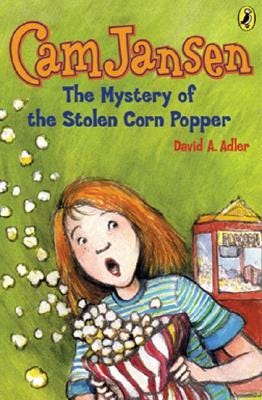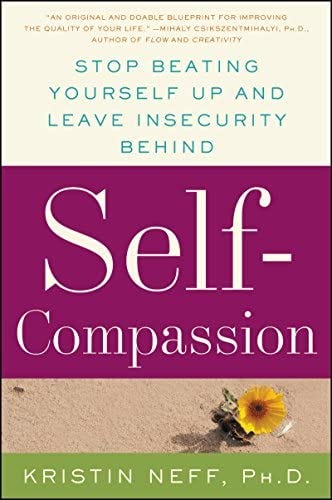As it did with many kids, reading for pleasure had a special place in my heart growing up. Percy Jackson & the Olympians was my fantasy series of choice. I often had reading competitions with my friends to see who could finish the next book first as well as in-depth discussions about which god or goddess would be our parent if we were half-bloods. Aside from Percy Jackson, my reading interests as a kid often leaned towards girl-led realistic fiction, including Junie B. Jones, Judy Moody, and Nancy Drew.
The Cam Jansen series was a saga that I didn’t read extensively, but that stuck with me quite a bit. The premise of the series was that the main character, Jennifer “Cam” Jansen, could use her photographic memory to help her solve mysteries. To perfectly capture an image in her mind, all she had to do was close her eyes and say “click,” and the scene before her was flawlessly frozen in her mind. Every little detail.
After reading a Cam Jansen book or two, I too would often try to capture scenes perfectly in my head, not by saying “click” but by focusing really hard on whatever was before me and intentionally trying to download the information into my mind. I thought the strategy would be useful for studying for tests, allowing me to memorize every word on a textbook page.
When I think of the season of my life containing my lowest mental point, the COVID-19 lockdown of 2020-2021 understandably comes to mind. I feel like a bit of a broken record at this point, discussing the bleakness I felt during this period. I know that my own suffering during that time is, in no way, a unique phenomenon. But, in the year coming off that experience, I feel most acutely aware of the ways it’s forever changed me. Today, when I face mental debacles, my brain often drags me back to those months of not doing much and how I coped with boredom and sadness.
Throughout the pandemic, I was mainly found in my childhood home, which incidentally put me in a more nostalgic mindset. I rewatched old movies, mulled through old photographs, and otherwise spent a great deal of my time staring out windows and wondering how different things looked from when I was a child.
The lush cedar trees in my backyard are ripped straight out of a Pacific Northwest Google images search. I grew used to staring at those trees in my backyard as a child, they became a kind of wallpaper to me. Stagnant and familiar. In the absence of public activities, I spent many evenings in 2020, after I finished studying for my college courses, laying on a wicker couch in my family’s backyard and staring at the trees, marveling at how their green contrasted with the bright blue of the sky. In those moments, staring at the generous, want-for-nothing beauty of the trees, I wished I could make like Cam Jansen and capture every detail of the moment, to hold in my head forever. These moments felt so precious that I almost mourned their absence before they even left me.

Fast forward to a few months further into the pandemic, I was still staring up at the trees and was growing more and more anxious about how the pandemic was unfolding and how it was impacting my overall perception of life. I was growing obsessive with my studying habits and opting for a strict daily routine to cope with the feelings of uncertainty I was enduring (more on that here). My therapist suggested I read the book Self-Compassion by Kristen Neff to teach myself how to better self-soothe during these times of distress.
I approached this book pretty guarded. In the past, I’ve found that self-help books can get rather preachy and, at times, feel like they’re talking down to me rather than acting as a supportive tool. After reading them, I can often end up soaking in self-pity rather than spurring myself to act.
But something about Self-Compassion, as plain as its title is and as much as its cover resembles a high school guidance counselor pamphlet, struck quite a chord with me. Perhaps it was that the book had my therapist’s stamp of approval. Perhaps it was the author’s uniquely candid, non-fussy voice. Or perhaps it was that it just came into my life with perfect timing. In any case, for whatever reason that this book happened to resonate with me, I’m glad that it did.
From this book, I learned that self-compassion is three-pronged: it involves mindfulness, common humanity, and loving-kindness. Mindfulness is the most meditative aspect of the practice, involving observing internal and external sensations without judgment as a way to bring about peace. Common humanity helps bring individuals out of their feelings of self-isolation by acknowledging that we’re a part of something bigger than ourselves; a common kindness and a common struggle. Finally, loving-kindness involves treating yourself with a loving sense of kindness, reassuring and soothing as you would towards a friend, partner, or child.
For me, mindfulness can be the biggest mental hurdle. When in my anxious state, it can feel as though my brain is on another plane of consciousness, impossible to bring back to reality. If I cannot return to a grounded state through mindfulness, the other steps of common humanity and loving-kindness feel impossible to achieve.
Self-Compassion describes different mindfulness techniques at length, including breathing strategies, body scans, observation techniques, and more. One mindfulness tool that particularly resonated with me was savoring. Closely related to gratitude, Dr. Neff describes savoring like this:
“Savoring refers to the conscious enjoyment of that which gives us pleasure; that is, lingering over delightful experiences, swishing them around in our awareness like a good glass of wine.”
Dr. Neff gives examples of savoring, including taking in the subtle aroma and taste of a good meal, reveling in the sound of a friend’s laugh, or deeply beholding the beauty of a fallen leaf. She shares that studies indicate that people who are able to savor the agreeable parts of their lives are happier and less depressed than those who don’t. When we savor, we choose to let the moments of pleasure in life stick around just a moment longer, consciously choosing to live in the moment and in the beautiful. A form of self-love.
Learning about the art of savoring and the benefits it can bring to one’s life brought greater clarity to why I’m so fond of re-watching my favorite movies, re-listening to my favorite albums, and cooking my favorite meals again and again. I’ve often been giggled at by friends and family for not venturing too far outside my comfort zone. But I like operating within my comfort zone because it brings me just that: a warm, comforting embrace. How wonderful is it that the taste of peppermint tea can bring about a soothing sense of peace, reminding you of what your mom always made for you when you had a stomachache? Or that watching an episode of your favorite TV show can remind you of watching it for the first time with your sisters, the three of you doubled over in breathless laughter?
I don’t think it’s beneficial to be shut off from new stimuli, keeping a closed mind towards new things that can potentially spark new happiness. Yet, I’m grateful for the emotion-clad memories I’ve attached to the things I love, as they allow me to re-savor them. Live in the old beauty when I’m feeling down, knowing that no matter how I’m feeling in the moment, there is still potential for new beauty. New experiences to savor.
While savoring in this context is intended to help people stay anchored to the bliss of the present, choosing to sink into the sensation - becoming consciously aware of the warm swelling in your chest as you marvel at the world - has a way of preserving these moments. Becoming keenly in tune with the details of the moment has a way of freezing it in time. Similar to how Cam Jansen uses her photographic memory to help solve mysteries, personal memories of pleasure can be used, not as a way to live in the past per se, but to give yourself an opportunity to return to life's beautiful moments during times of struggle. And remind yourself how bountiful these moments can be if you just pay a little closer attention.
If you enjoyed this post, I suggest checking out my article “Why Sunsets Are Too Short,” as it touches on similar concepts, relating to mental health and mindfulness








stop the cam jansen click just brought back memories i forgot about
This one is a gift to me ! Thank you ! And Cam Jansen was a maverick teaching us to savor .